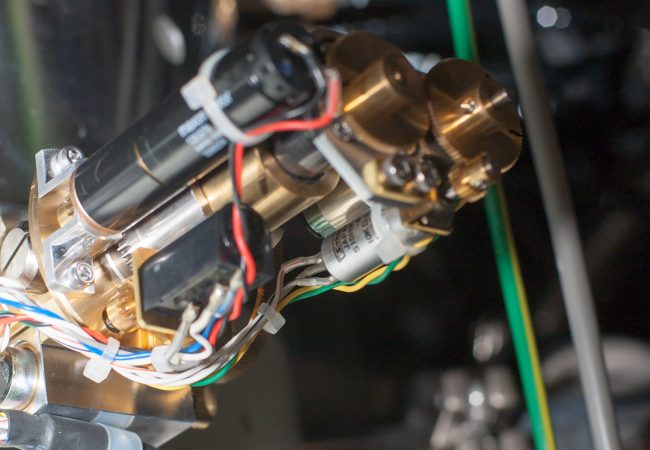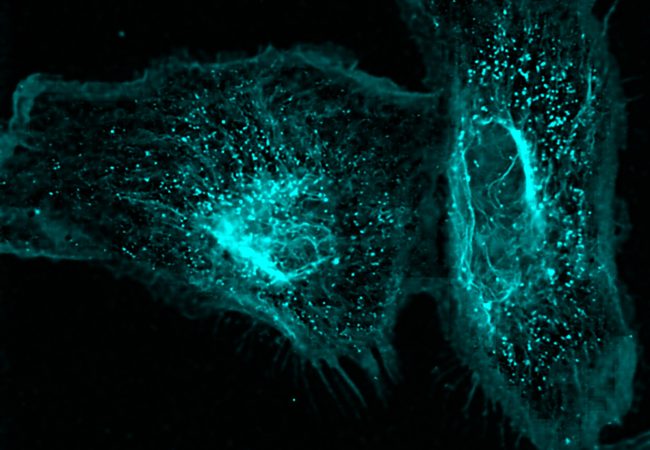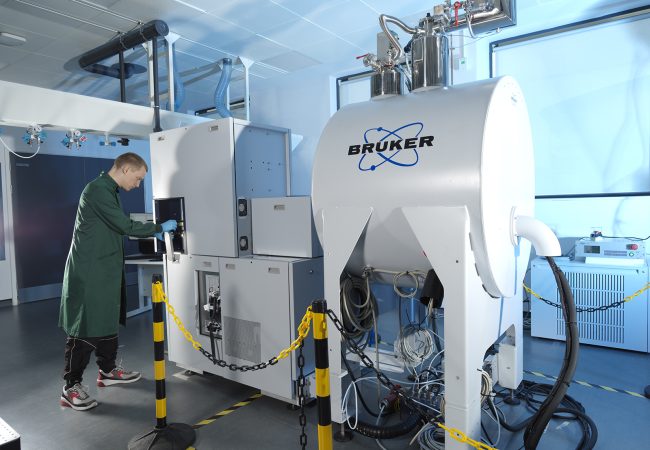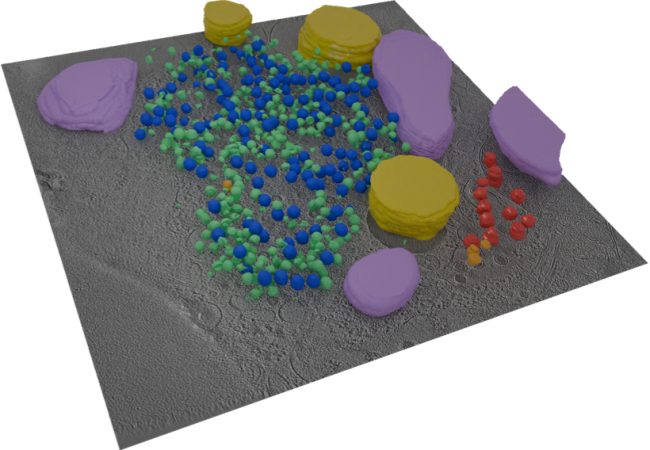Cells

Chromatic Aberration-Corrected Electron Microscope
Knoll, the first chromatic aberration-corrected electron microscope in the UK, will push the current resolution limits for biological samples by correcting energy variations in the electron beam. This allows detailed imaging of thicker and liquid samples, benefiting biology by enabling…

Stimulated Emission Depletion Microscopy (STED)
We are from investigating how cells communicate with one another, to understand more complex structures such as those found in organoid and tissue formation.

Trapped ion mobility (TIMS) time of flight (TOF) mass spectrometry
A cutting-edge commercial Bruker mass spectrometry (MS) instrument, coupling high sensitivity, high resolution, rapid time of flight (TOF) mass analysis to high resolution trapped ion mobility spectrometry (TIMS) enabling structural elucidation.

Quantitative Biology Across Scales
Our aim: To combine innovative imaging techniques and AI in ways that will allow researchers to flexibly image across large and small scales – from seeing whole organs to views of cells and the intricate structures within them – and with these, to transform how doctors treat patients.
